

Let's play, doctor
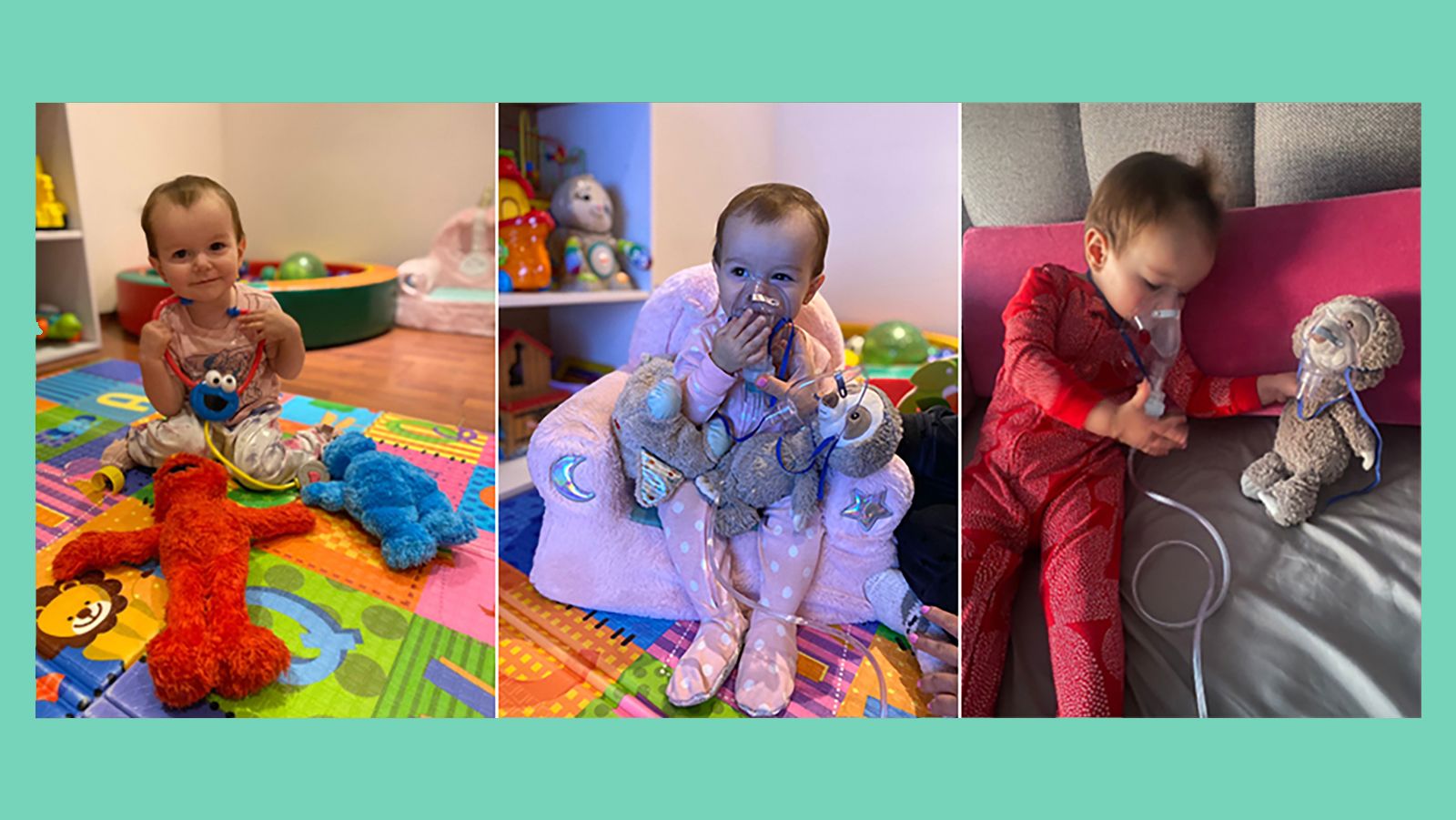
Guillian-Barré Syndrome is a rare, serious condition that typically causes numbness, weakness and pain; but for one of Martha Mancilla’s patients, it was even more debilitating.
Earlier this year, Martha, a paediatrician working in the Mexican state of Chiapas, was asked to treat a 14-year-old girl whom the virus had paralysed from the waist down. The girl’s breathing had been compromised, she was connected to a ventilator, and the only way she could communicate was through eye movement.
Almost intuitively, Martha recognised that she had to do something different to help this patient through the silent trauma of her hospital stay. The answer, she felt, was to make the experience as playful as possible.
When, for example, the girl’s parents mentioned that she was a basketball fanatic, Martha began to bring a ball for her to hold whenever she needed to reduce her ventilator support. She then talked the girl through the difficulties of learning to breathe independently again as if it was a basketball match, ‘gamifying’ the therapy. At other times, Martha would find time to style her hair and do her make-up, then hold up a mirror so that she could inspect the results.
By May, the virus had left the girl’s body, the strength had returned in her legs, and she was on her way home. It was, of course, medical treatment which had achieved this, but her distressing hospital experience had also been significantly eased by the power of play.
You improve mental well-being and health through play... If this is the right thing to do, why aren’t we doing it more?
Martha was keen to share this experience with Paulina Pérez-Duarte, a fellow paediatrician and a PhD candidate at the University of Cambridge. Since 2021, Paulina has been running an annual Play in Hospital Awareness Week (known as ‘Semana JIM’), aimed at promoting a pro-play mindset among child-healthcare professionals.
Because play-based therapy is unusual at the Chiapas hospital, Semana JIM was important in affirming Martha’s belief it could help. “I love playing with children anyway, but there is a justification,” she said. “You improve mental well-being and health through play. When I saw that during Semana JIM, it opened my eyes. If this is the right thing to do, why aren’t we doing it more?”
Martha’s experience is not uncommon. While play has been gradually integrated into paediatric care in the UK, backed by a growing body of research, in many other countries it is atypical. Pérez-Duarte began her career in Mexico, but it was not until she came to the UK for further study that she realised that the use of play in healthcare was a respected field. She is now undertaking doctoral research on play in healthcare settings within the PEDAL (Play in Education, Development and Learning) Centre; part of the University of Cambridge’s Faculty of Education.
Semana JIM targets Spanish-speaking healthcare professionals and is Pérez-Duarte’s effort to spread the word further. The annual event, which will take place for the third time in November, offers online discussions, ideas and practical advice about how to incorporate play into children’s healthcare. Previous events attracted 140 participants from countries like Mexico, Venezuela, Ecuador and Spain.
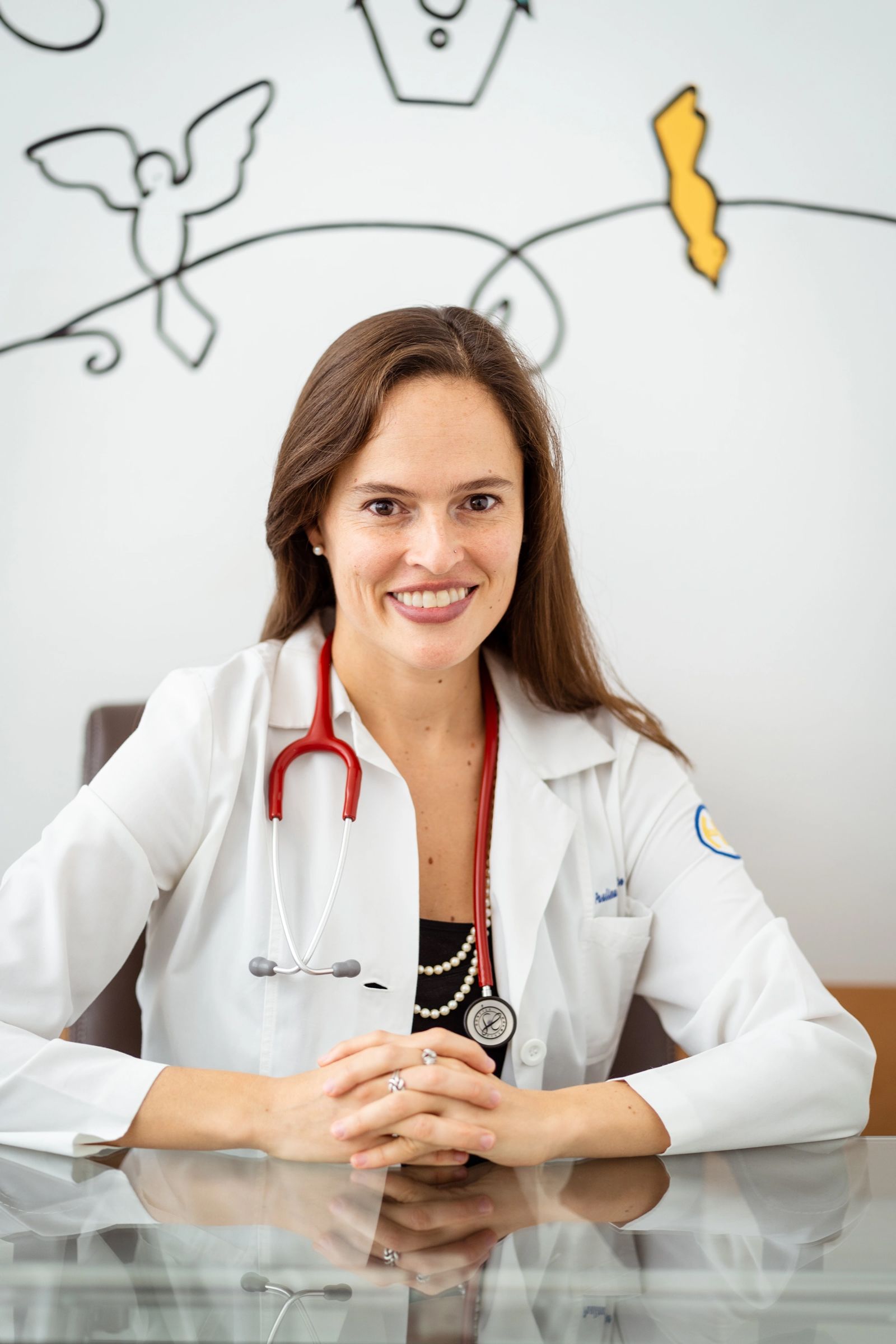
Paulina Pérez-Duarte Mendiola
Paulina Pérez-Duarte Mendiola
Being a child in a hospital is challenging and unsettling... play can maintain a sense of normality.
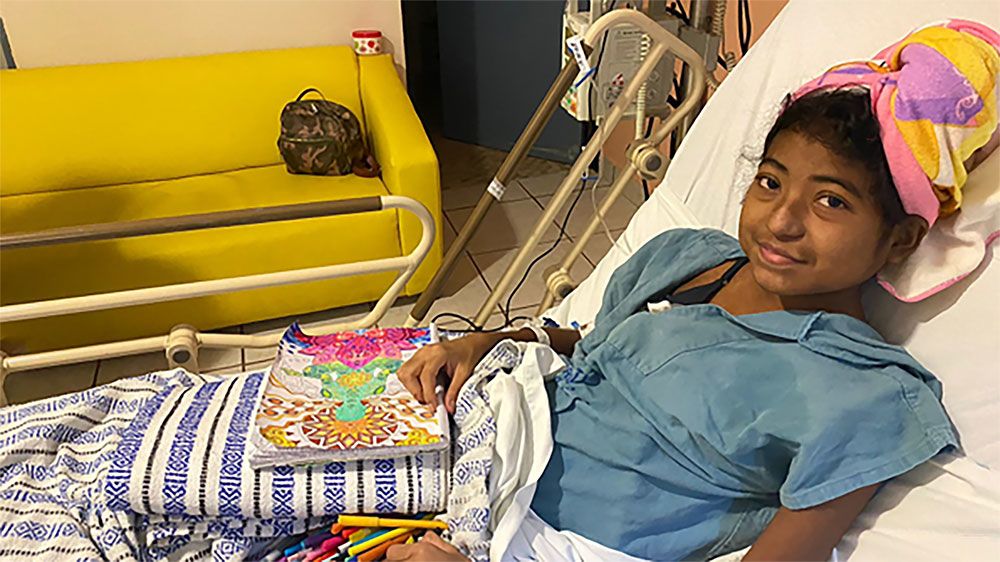
Pérez-Duarte has spoken about a ‘play and health revolution’ and hopes to develop a network of like-minded practitioners who will advocate for the wider use of play in hospital settings and community care.
“Being a child in a hospital is challenging and unsettling,” she said. “It also doesn’t stop them from being children and play can help maintain a sense of normality. In many parts of the world, we need to beyond a situation where this is championed by isolated individuals. Semana JIM is an attempt to bring together these pockets of expertise, and amplify the approach.”

After two years, the initiative is already empowering professionals like Martha, who instinctively recognise the importance of play, but need help and inspiration to formalise its use in paediatric care.
Another example is Josefa López (Jóse), a Mexican paediatrician and algologist (or pain therapist), who is now known in her hospital as “the doctor who tells stories”. Semana JIM gave her the confidence to bring stuffed animals and toys into work, which she uses to create stories and ad hoc games for her young patients.
She told Pérez-Duarte about one particular patient called Ana. Ana has a medulloblastoma, which is a type of tumour affecting the nervous system. When Jóse first met Ana, she was in so much pain that, according to her mother, she hardly ever laughed anymore. Now, she can’t wait for one of her regular video calls with Jóse, because it will involve a new story, probably accompanied by the appearance of puppets and Jóse’s repertoire of silly voices.
This may be fun, but it has a serious purpose. Through the stories, Jóse teaches Ana how to use her medication and manage the pain. “At the beginning of the consultation a patient’s pain might be at seven on the scale, but the laughter we create means it ends up at two or three,” she said. “Seeing them laugh, I know it is all worth it. I love that more childhood specialists are not only joining the practice of algology but specialising in play in hospitals.”
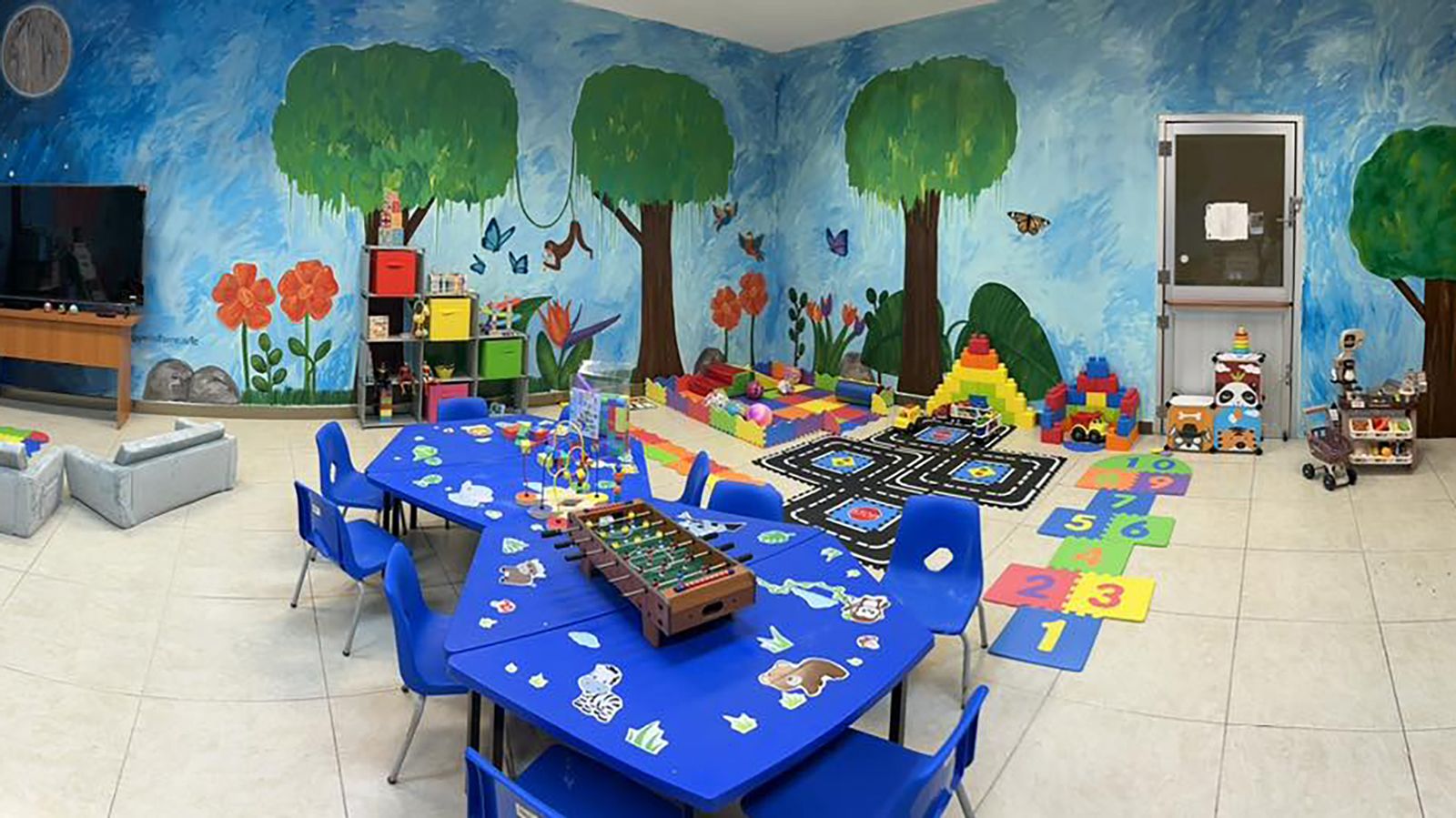
I think that most paediatricians know that deep down inside, children have magic and play is the way to get it out and share it.
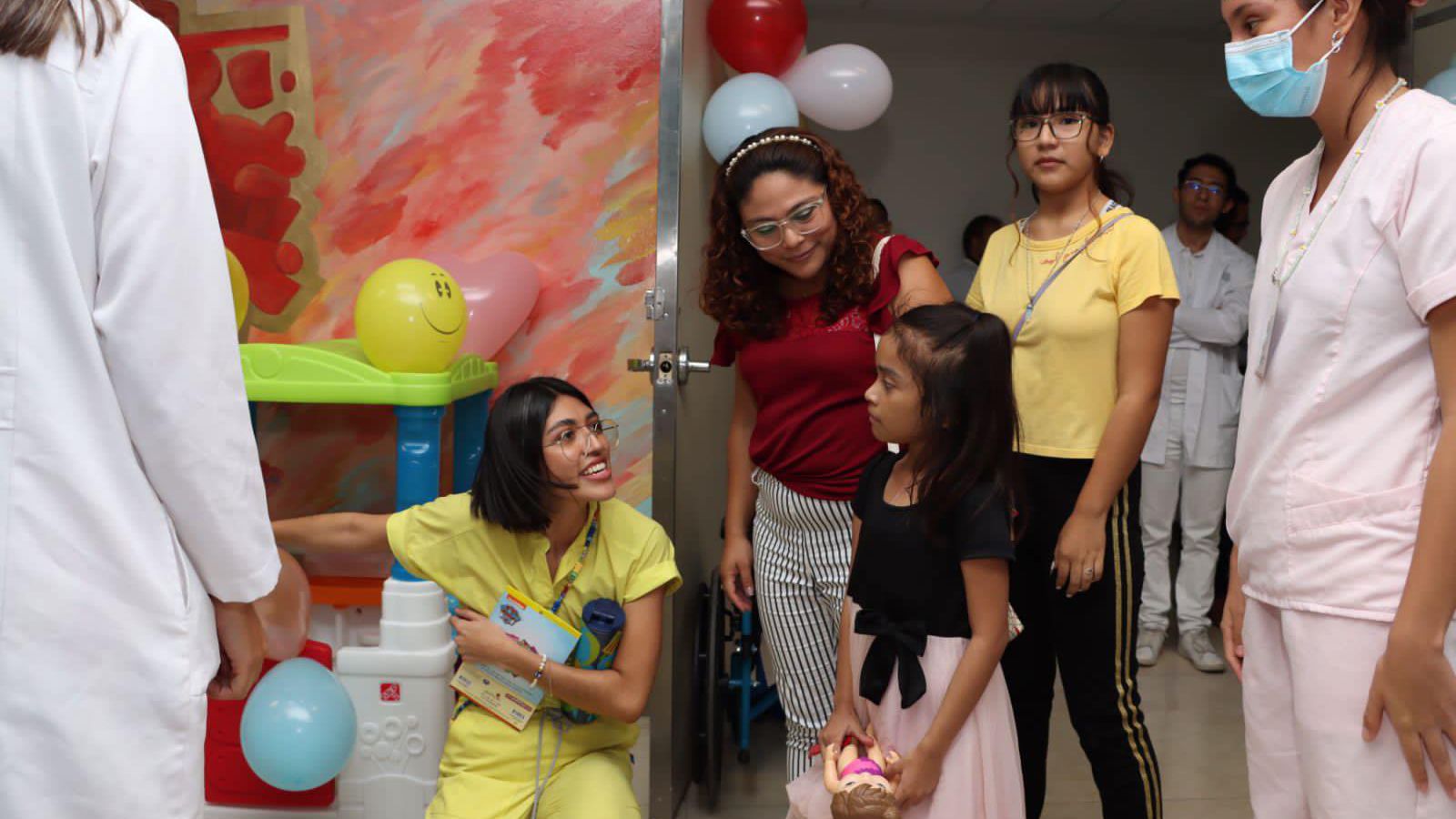
Sheila Perez, a trainee paediatrician who has also participated in Semana JIM, was able to transform the experiences of another girl who arrived in her regional hospital screaming and asking for her mother. She brought books and toys into the ward, and made time to watch movies with the patient at night. “When she was admitted to the emergency room, she was reluctant to allow anyone in to examine her,” she told Pérez-Duarte. “Now, she is super collaborative and says that we are friends forever.”
Similarly, thanks to Semana JIM, Ely Sánchez Felix, a paediatrician and cardiologist in Yucatán, Mexico, gained the confidence to advocate for the use of therapy dogs in the hospital, and, more recently, the establishment of a permanent playroom. Some of her colleagues were uncertain whether this was necessary, but Ely was able to persuade them with evidence she had acquired during Pérez-Duarte’s awareness week. She has also been constantly supported by Fundación Lilo México, an ally of Semana JIM.
Pérez-Duarte is currently planning the 2023 edition of Semana JIM, which will include presentations about children’s experiences as hospital patients; play in humanitarian contexts; and the use of playful methods to support teenagers with cancer, among others. Each Semana JIM seems to strengthen an emerging network of practitioners who, like Martha, Jóse, Sheila and Ely are kick-starting play in health initiatives where they have not always been the norm.
“I think that most paediatricians know that deep down inside, children have magic and play is the way to get it out and share it,” Ely told Pérez-Duarte. “Knowing that play is not only the best kept secret among paediatricians, but that there are people who can prove that and study it, makes us feel supported and safe. It encourages us to follow this path.”
Semana JIM 2023 starts on 29 November. The program, registration information and material from previous events are all available on the event website.
Images in this story (top to bottom):
1. Child with toys in hospital, reproduced by permission of Miranda Perez Duarte Ojeda.
2. Paulina Pérez-Duarte.
3. Child in hospital bed with colouring materials, by permission of Janina Aguilar Cruz.
4. Semana JIM® logo reproduced by permission of Paulina Pérez-Duarte.
5. Playroom in Merida, pictures by permission of Ely Sánchez Felix.